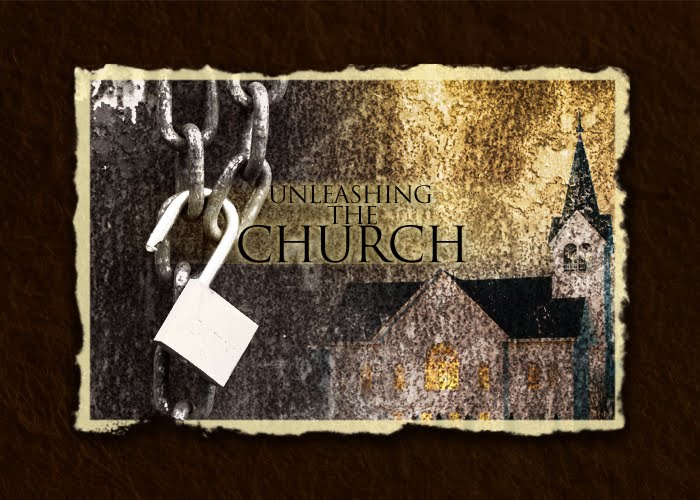Augustine’s great quote is, “Love God and do as you please.” The key to that quote is love God first, in the same way, behavior driven by passion for God is different than behavior driven by belief systems based on the rules. During the first half of the 20th century another den of iniquity sprang up in towns everywhere, i.e. the movie theater. Conservative church leaders regarded any behavior associated with saloons or movie theaters as evil. This led to an interesting paradox. What lay Christians did in ministry wasn’t very important, but what they did, or more precisely, what they didn’t do, in their social lives was very important.
Conservative Christians isolated themselves. They separated from other Christians because of what the other Christians believed. And they separated from non Christians because of how non-Christians behaved. My friend and co-author remembers the struggle that he had as a new Christian, when he was offered a glass of wine while visiting in the home of a French family. He wanted to share my Christian testimony with this gracious family, and he didn’t want to offend them. But, he also didn’t want to offend his conservative Christian friends. Fundamentalism created a behavioral dilemma for me as a young Christian; a dilemma that I soon learned is supported by neither scripture nor Christian tradition.
Interest in the personal ministry callings of the church’s lay people languished during the four decades of the Liberal/Fundamentalist Controversies. It is true that liberal churches remained more committed to social action than did conservative churches. Liberal pastors were more likely to make Social Action pronouncements from their pulpits than were conservative pastors. As a result, there were more liberal Christians than conservative Christians, marching for civil rights. But neither liberals nor conservatives were likely to get involved in personal ministry to the new emerging people groups.
In both liberal and conservative churches it was largely the religious professionals who ministered with passion. In conservative churches the professionals were armed with the necessary theological weapons needed to fight the heresy battles. And in the liberal churches the professionals were armed with the sociological awareness necessary to direct the masses to the appropriate places of social protest.
During the period of Church History dominated by the Liberal/Fundamentalist Controversies, 1925-1965, lay people were forced into both passive church ministry roles and isolated lifestyles. It was important that only those who really understood their church’s theological distinctives be able to exert influence in the church. Therefore lay people expected their leaders to be professionally trained and passionately committed to both their church’s distinctives and social lifestyle. After all the clergy was paid to be knowledgeable and passionate.
Lay people, on the other hand, were not expected to be passionate about their personal call to ministry. But, they were expected supportive of their leaders through regular attendance and financial support, (nickels and noses). And in conservative churches they were expected to separate themselves from the world; which meant no cards, dancing, listening to Elvis or, God forbid, watch him shake his pelvis in the movies. Churches successfully structured themselves so that their people could only travel within “gated communities.”
Followers
Subscribe to:
Post Comments (Atom)
About Me

- Rich
- I am a slave to no man or institution. I have worked with Frank Tillapaugh for thirty years and most of the ideas are work we would like to share.
The next generation

God thank you for two amazing young leaders
Looking Forward

Each year I get to spend time with young leaders and the gap is growing between them and my generation, why?
Popular Posts
-
I have watched new pastors burn out in less than a year...why? Fuller Institute did a survey and found that 80% of pastors believe that past...
-
General Calling and Special Calling Soon after the Roman emperor, Constantine, converted to Christianity in 315 A.D. churches began to profe...
-
I saw one of my friends (Wes, he is a follower of this blog, God bless him) tonight and he told me after reading this blog he was surprised ...
-
When 20% of the people do 80% of the work in a church, the church leaders usually think that they have an 80% problem. ...
-
I am taking a break from my series to talk about something that just happen. I just met Gavin, he arrived today. His parents Dan and Steph C...
-
If we ask, “what would Jesus do in His new body, i.e. the church; that would be a continuation of what he did in his original body?” The ans...
-
And, believe it or not, a strong emphasis on edification does not often generate mission. Mission potential isn't dependent on how well...
-
Several years ago my friend Frank took a walking tour in London that ended up at Wesley’s chapel. As the tour group ap...
-
Ok yesterday I had one response to my blog and while it was thoughtful I was reminded that words on a screen do not always convey the experi...
-
Nothing influences the environment of a church as much as the preaching. It is through preaching that people understand how their pastor vie...

1 comment:
Hi Rich,
What a great post! I completely agree. It seems like "Conservative" or Fundamentalist churches (like some I've attended) are majoring on the minors and vice versa. Where should the lines be drawn in the arenas of our social lives?
Post a Comment